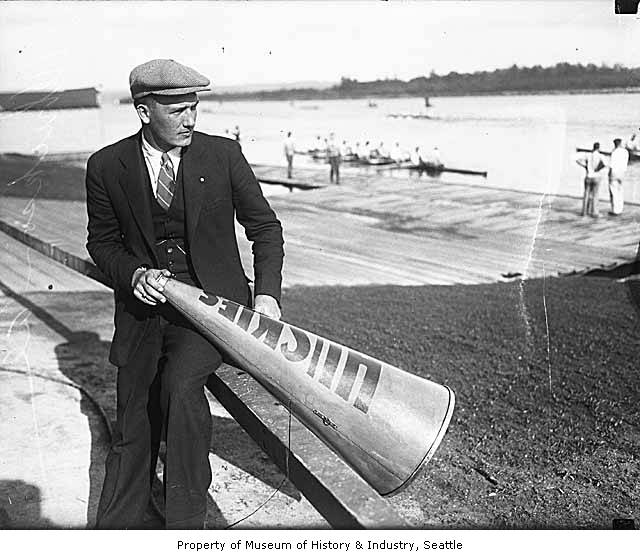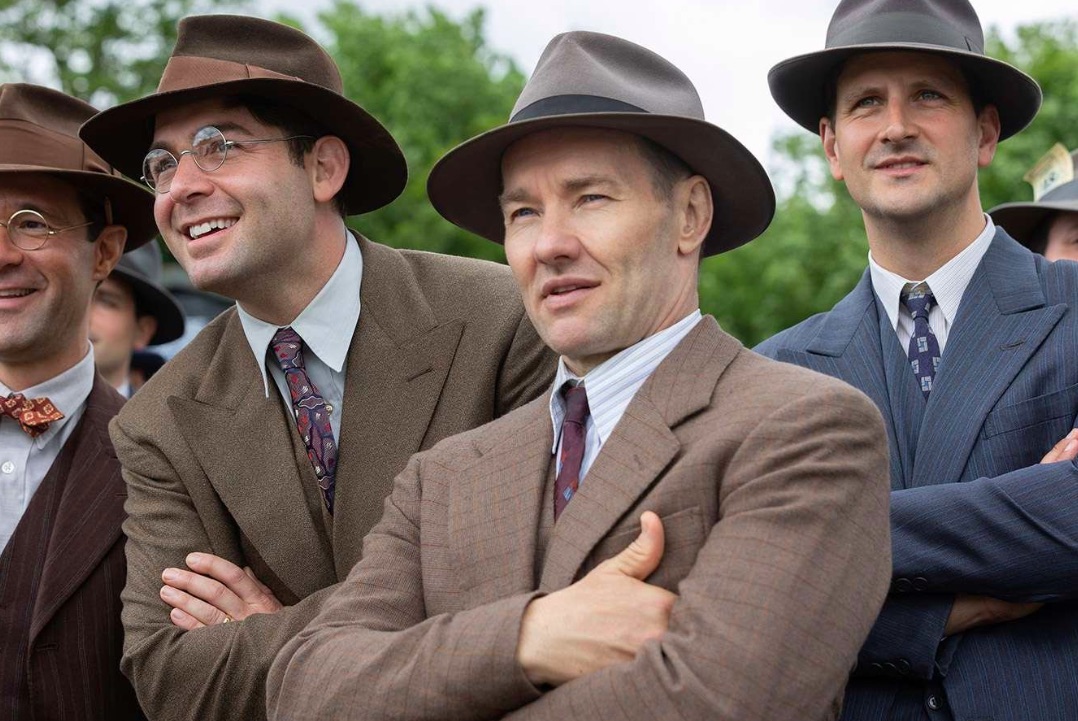Sports biographical drama, ‘The Boys in the Boat,’ tells the story of resilience and perseverance in the face of all odds. At the center of it is a team of young men who show promise for one of the most physically demanding sports in the world, but to bring them together, they need someone who not only knows the sport but also knows people. Coach Al Ulbrickson is just that. Played by Joel Edgerton, the character forms the spine of the team, whipping them into shape, guiding them through their toughest time, and showing faith in them when no one else does. In real life, coach Ulbrickson’s achievements went far beyond the 1936 Olympic win.
Al Ulbrickson Had a Noteworthy Career as a Rowing Coach
Born in Seattle in 1903, Alvin M. Ulbrickson grew up on Mercer Island and would daily row two miles across the lake to get to school. This is where his love for rowing began, and it increased tenfold when he attended the University of Washington. He took the position of strokes and represented the team in national championships several times. In the final year of college, he married Hazel Stehling, with whom he remained for the rest of his life.

Once college was done, Ulbrickson joined Rusty Callow, the coach under whom he’d trained, to train the teams in the years to come. When Callow left UW, Ulbrickson got his job, and rightfully so. At the time, he was just 24 years old, but he’d already earned a reputation for himself as a master of the sport, and he intended to impart that expertise to his team. Another thing that set him apart was his tight-lipped nature. He didn’t speak more than he needed to and never indulged the press much, either. Because the sport got a lot of attention and there seemed to be cameras around at all times, he started dressing up in a business suit, a necktie, and a fedora, a trademark that also makes its way into the film.
Ulbrickson was completely dedicated to the sport and to his resolve to create the best team around. He strictly implemented his rules, which also barred drinking, smoking, and even swearing. Everything was done with the whole team in mind and he inculcated in his men to leave behind their individuality and always put the team first. He did the same himself.
The coach went to all necessary lengths to get his team whatever they needed to become the best. He was also keen and observant and always kept an eye out on the performances of the young men, logging detailed observations of their performances, analyzing their strong points, and shuffling them on the boat to find out the best placement to serve the team.
His attention to detail and unmatched commitment to the team helped turn things around for the Washington Huskies. The team that made it to the 1936 Olympics did so in an undefeated streak. He further got the Huskies six national titles, defeating Cal 20 out of 28 times in varsity duels. His team also got an Olympic gold in London in 1948 and a bronze in 1952 in Helsinki. The coach finally retired in 1959, leaving behind an enviable legacy.
Al Ulbrickson Spent His Final Years in Quiet Solitude

Al Ulbrickson died on November 7, 1980, at the age of 77, due to natural causes. Following his retirement, he’d resorted to a quiet life with his wife, Hazel. He spent his days fishing and woodworking while also devoting time to family. He was also a part of the Green Lake Rowing Club and was also inducted into the National Rowing Hall of Fame, Washington Sports Hall of Fame and the Husky Hall of Fame. He was also one of the five coaches at the time to become a charter member of the UW Athletic Hall of Fame in 1979.
Ulbrickson had a son, Al Ulbrickson Jr., who inherited the love for rowing and went into the sport, competing in the 1952 Summer Olympics in Helsinki, winning bronze, while his father was still the coach. Known as “Dour Dane” due to his stoic manner and Nordic ancestry, Coach Ulbrickson’s name is always taken with respect and admiration by the many people whose lives he touched, especially the young men who trained under him and achieved feats they might not have thought they would.
Read More: What Happened to The Boys in the Boat After the Olympics?


You must be logged in to post a comment.